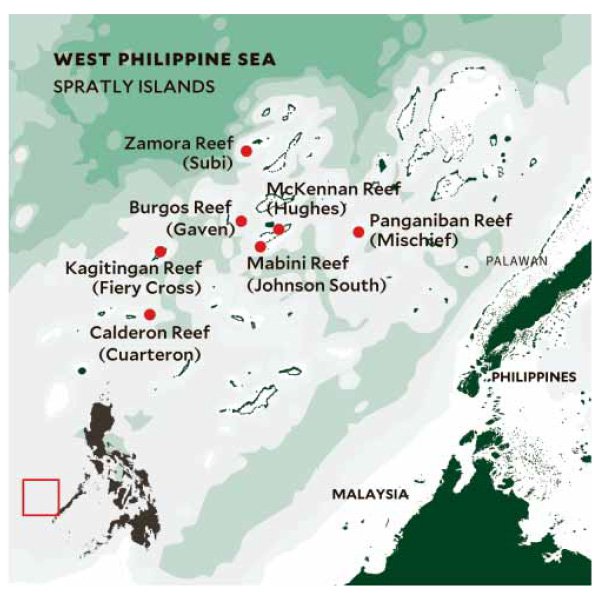China threatens PH military aircraft in latest flight over South China Sea
The Chinese Navy has threatened a Philippine military aircraft in its latest known flight over China’s man-made islands in the South China Sea, telling it to leave or else it will face consequences.
A US Navy plane overheard China’s radio message to the Philippines during a surveillance flight of its P-8A Poseidon aircraft over the Spratly Islands last Friday.
“Philippine military aircraft! I’m warning you again. Leave immediately or you will bear responsibility for all the consequences!” a voice was heard as saying.
Television networks BBC and CNN were given the rare opportunity to join the US surveillance flight and witness China’s expansion in the Spratly Islands from a view of 16,500 feet.
BBC was able to pick up the radio warning of the Chinese to the Philippine military aircraft supposedly flying nearby. It noted the difference in tone with the ones issued to the US.
“We overhear China warning a Philippine aircraft. This time, they are not as nearly as polite,” BBC’s Rupert Wingfield- Hayes said in his report.
READ: PH airs concern over Chinese radio warnings
The US plane flew over four of China’s artificial islands — Kagitingan (Fiery Cross), Zamora (Subi Reef), Panganiban Reef (Mischief), and Mabini (Johnson) Reef.
The report said the US Navy was warned by China at least five times within the flight. But China appeared to have issued milder warnings to the US: “Leave immediately and keep out to avoid any misunderstanding.”
During the warnings, the US consistently replied with: “This is United States naval aircraft conducting lawful military activities beyond the national airspace of any coastal state and exercising these rights is guaranteed by international law. I am operating with due regard for the rights and duties of all states.”
The US pilot on board Lt. Matt Johnson said the warnings were a “routine occurrence” and it has no effect on their operations.
Nine vehicles were also spotted moving around in one of the reefs during the surveillance flight.
Philippine defense and military officials did not immediately respond to requests for comment.
Euan Graham, director of the International Security Program at the Australian-based Lowy Institute, also noted the “striking” difference of China’s approach to the Philippines and US.
“The more menacing tone of PLA [People’s Liberation Army] warning to Philippine aircraft, compared to US aircraft, is striking. Calibrated to intimidate smaller, weaker states?” he wrote on his Twitter account.
Acting Supreme Court Chief Justice Antonio Carpio, a staunch critic of President Rodrigo Duterte’s foreign policy on China, said the Philippines should file a diplomatic protest over the incident.
“Subi Reef, a low-tide feature, is part of the territorial sea of Pagasa (Thitu) as ruled by the arbitral tribunal. The airspace above Subi Reef is part of the territorial airspace of Pagasa,” he told Inquirer.net.
Pagasa is the biggest island occupied by the Philippines in the Spratlys, and the only one inhabited by civilians. It is located less than 20 nautical miles from Zamora Reef.
Paganiban (Mischief) Reef, meanwhile, is a low-tide feature part of the Philippines’ exclusive economic zone as ruled by the international court, Carpio argued.
“Only the Philippines can build structures on Mischief Reef. There is freedom of overflight in the airspace above Mischief Reef,” he said.
China claims most parts of the South China Sea, including waters close to the shores of the Philippines, Brunei, Malaysia and Vietnam.
The ruling on a challenge brought by the Philippines, the UN-backed Permanent Court of Arbitration in The Hague invalidated China’s sweeping claim in July 2016.
But the Duterte government set aside the ruling in exchange for economic opportunities and friendly ties with China.
Early this year, the Inquirer published close-up surveillance images of China’s reclaimed features now equipped with runways, radar towers, missile shelters and other military facilities. The photos showed that the bases are almost operational and awaiting the deployment of personnel and aircraft.
EXCLUSIVE: New photos show China is nearly done with its militarization of South China Sea
China insists that the facilities on its man-made islands in the Spratlys are primarily for civilian purposes and they have “indisputable sovereignty” over the area. /je
